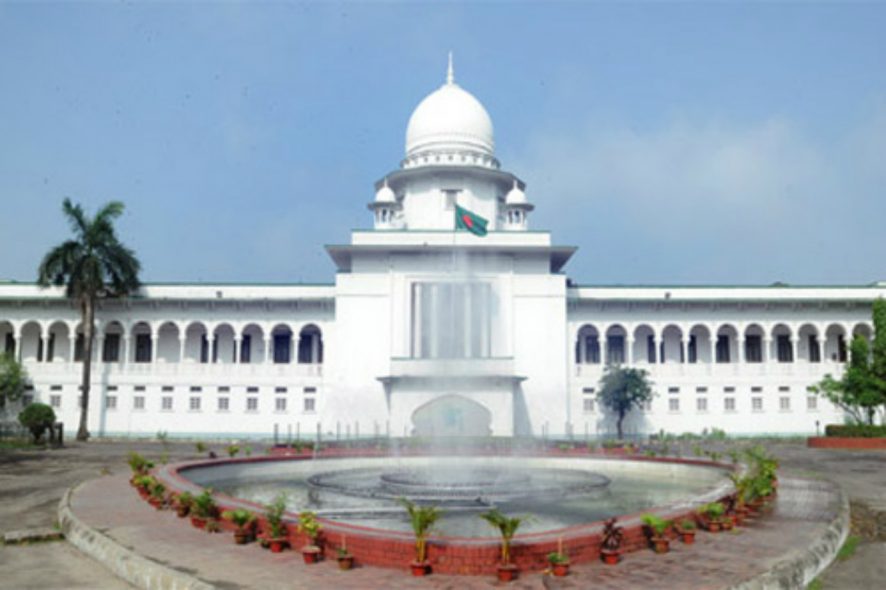Supreme Court of Bangladesh (Appellate Division): While quashing a review appeal filed by Mir Quasem Ali, the 5 Judge bench headed by Surendra Kumar Sinha, CJ., upheld his death sentence for ‘crimes against humanity ’during the Bangladesh war of independence in 1971.
Petitioner Mir Quasem Ali was convicted by the International Crimes Tribunal No.2 on ten counts under Section 3(2) of the International Crimes Tribunal Act,1973 and sentenced to death in respect of count Nos.11 and 12, and 20 years and 14 years respectively in respect of two counts, and 7 years on six other counts. A review petition has been filed against the conviction and sentence maintained by this Court. Learned Counsel had preferred arguing on the charge No. 11 on which the accused was awarded death sentence and which was relating to the killing of a young freedom fighter Jashim in Dalim Hotel, Chittagong town.
The Court on the question of sentence held that there was no mitigating ground to commute the sentence of death in respect of the charge and thus affirmed the findings of the tribunal observing that the tribunal rightly held that ‘accused Mir Quashem Ali has incurred criminal liability which may legitimately be taken into account as an aggravating. The Court also disbelieved the plea of alibi taken by the accused and accepted the views taken by the tribunal in this regard. The Court held that in the issue of daily Azadi dated 04.12.1971, there were reports that the petitioner being in charge of Islami Chatra Sangha, Chittagong Chapter and being local commander of Al-Badar Bahini was in Chittagong during the relevant time. On the question of culpability of the petitioner, the Court observed that the butchers suddenly attacked the innocent citizens, university teachers and intellectuals in the dead of night – the night following 25th March, 1971. The brutality and butchery were so serious that shocked the world’s conscience. After a bit of recovery from the trauma of brutality, the people of this country resisted the occupation army and started fighting to liberate the country. The term ‘crimes against humanity’ has come to mean anything atrocious committed on a large scale. These crimes are committed against civilian population during war. These offences by nature are heinous therefore, the accused does not deserve any leniency on the question of sentence on consideration of the nature and gravity of the offence. It was observed that the tribunal awarded the sentence of death in respect of charge No.11, which according to us, was ‘proportionate to the gravity of the crime.’ [Mir Quasem Ali v. Chief Prosecutor, International Crimes Tribunal Dhaka, 2016 SCC OnLine Bang SC (App) 1, decided on 30th August, 2016]







